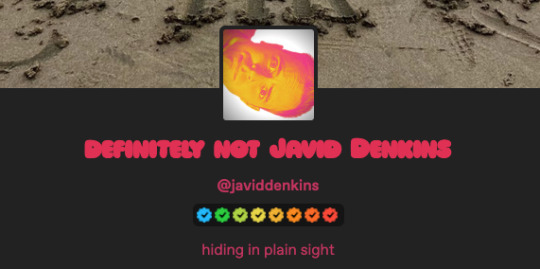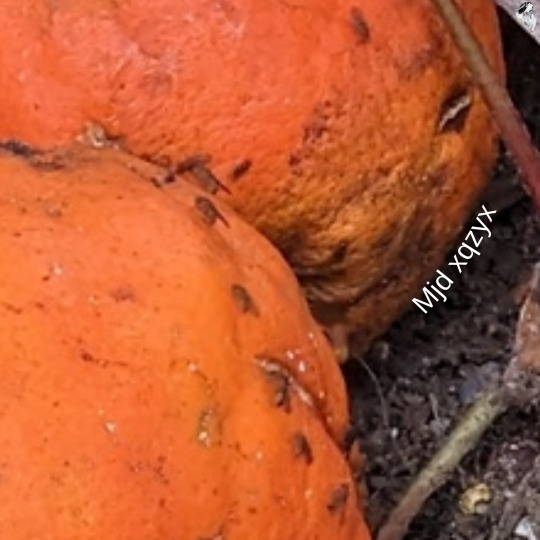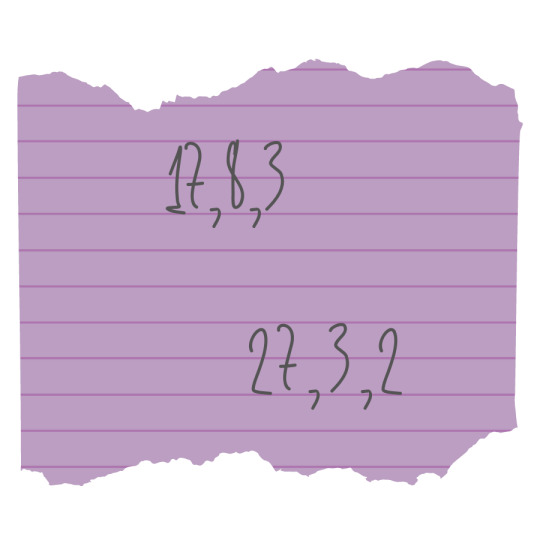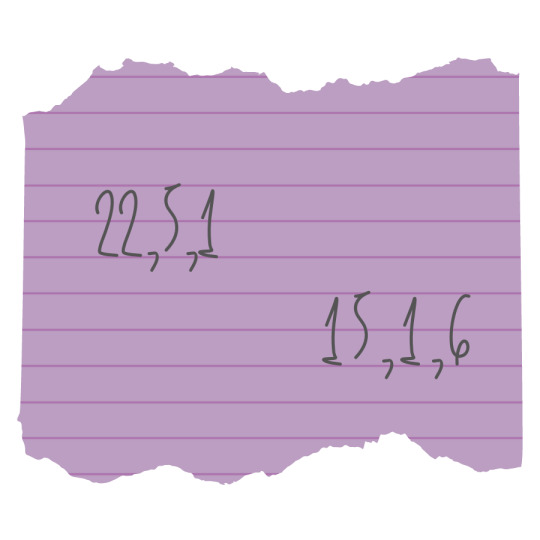Text
Javid Denkins is not interested in answering questions.
It's 9:30 in the morning and I'm sitting across from Denkins in a conference room at the AMC Studios offices. Denkins declined to meet anywhere more personal than this beige and glass room, impersonal Muzak buzzing through the speakers, windows overlooking an empty studio lot. There are posters on the wall but none, strangely, for Blow the Man Down, the runaway hit Denkins conceived, writes, and now showruns.
Blow the Man Down, or BTMD as it's frequently referred to by fans and journalists alike, is a workplace comedy set in the Golden Age of Piracy. This unusual premise would be interesting enough even without the top-tier leads brought on by AMC to play opposing pirate captains Sam Bellamy and Olivier Levasseur—Oscar Issac and John Boyega light up the screen and bring surprising comedy chops to the pirate-filled stage they share with such talents as Michelle Yeoh ("Zheng Yi Sao") and Sam Neill ("Captain Benjamin Hornigold").
But beyond that, BTMD seems to be that rare thing in mainstream media: a slow romance between two middle-aged men finding love for the first time. The first—and so far, only—season ends on a cliffhanger, our heroes separated by an ocean but determined to reach one another, and their love story—if it is one—stays unresolved.
Usually an interview like this—between seasons, after renewal and filming but before advertising—would be the perfect opportunity to delve into the mind behind the magic and attempt to tease out hints about what's to come.
But Denkins seems determined to ignore Hollywood's traditional playbook.
Whether this is the standard conference room used for interviewing reluctant showrunners, or if Denkins picked it especially for the purpose, I'll never find out. I've already been waiting half an hour, uncertain if Denkins intends to join me at all. When he does finally arrive, he makes his position clear.
"I'm only doing this because you agreed to my terms," he says.
I'd describe what he looked like, if he had a coffee or a snack or a smoker's twitching nerves, if he sounded tired or amused or angry—but I can't. If you see a description here, it's because Denkins decided, for whatever reason, to approve it. Otherwise, sharing my impression of Denkins is off the table, one of many terms and conditions my editorial team and I had to agree to before Denkins would accept this meeting.
Denkins doesn't want to make my job easy. Photos of him do exist from the few red carpets he's attended; enthusiastic interviews with the cast, writers, and production team of BTMD definitely paint a picture that belies Denkins's apparent efforts to avoid perception. But here and now, in the oppressive air conditioning of the AMC offices, I am contractually obligated to interview a cipher.
If he can be all business, though, then so can I. I hit a button on my phone's recording app, set it down between us, and ask what made him decide to tell the story of an obscure pair of pirates like Sam Bellamy and Olivier Levasseur.
He shrugs. "Why does anyone write anything? This is my job."
It's not the kind of answer I was expecting. Something must show on my face, because he follows with, "That's unsatisfying, isn't it. No definitive answer."
"It's not what I expected," I hedge.
"What did you want to hear?"
I try to gather my thoughts, but I'm definitely stalling, uncertain that this is what Denkins intends. "I did a little research," I say. "Not as much as I imagine you did, but I found some of Bellamy and Levasseur's history together and, later, apart. Bellamy's ship is the only fully authenticated Golden Age shipwreck in the world, so it makes sense that the wrecking of the Whydah is an important turning point in season one. Levasseur, on the other hand, is best known for the mystery of his encoded treasure map, flung into the crowd at his hanging and only ever partially solved, which you seem to have used as a foundation for the coding and decoding motifs throughout. But for a show that seems determined to discuss the consequences of fame and reputation, it's fascinating that you've chosen two men most casual viewers have never heard of."
"Outside the narrative they built for themselves," Denkins corrects. "Is there a question in there?"
I remember again that Denkins isn't here to make this easy for me. "Why not choose one of the more well-known pirates of the era? Henry Morgan, Captain Kidd, and Blackbeard are all arguably more famous both now and when they were alive. What made you choose Bellamy and Levasseur for this story?"
"I think," Denkins says, "I just answered that. There's a difference between how you perceive yourself, and how the world perceives you. Those famous pirates retained their notoriety even after death. Sam and Ollie did have reputations when they were alive, but if people today know them at all, it's typically for reasons completely unrelated to whatever little fame they achieved in life."
"And that fascinates you?"
Denkins looks irritated. "It doesn't matter what fascinates me. That's the story, that's—look, I don't know how to write a puff piece like this," Denkins says. "I don't know if it would really sound like this, if anyone would bother caring enough about what I want to get this far."
"Excuse me?" I say.
"Do you honestly think," Denkins says, "there's a single journalist out there that would actually agree to these interview conditions? This is a fantasy, a what-if, and it still doesn't work."
"What do you mean?"
"I mean," says Denkins, "I didn't even give you a name."
And that's true, I realize. I don't have a name.
"Right," says Denkins, as if hearing my thoughts—and I suppose, in a way, he does. "And you don't know how you got here, and you don't know where you'll go after. I made you up. I made all this up."
I look at my recorder, which isn't a recorder. I look at the room, which isn't a room.
"Okay," I say. "So what did you want to happen?"
Denkins taps my phone's screen to stop the recording. Denkins imagines me noticing that he taps the screen, and so this must have meaning. There is no room for junk words and actions in prose, and even less in television. Whatever's on the page has to have meaning, or it's wasted space, wasted time, a moment that could have been useful now gone and never coming back.
Denkins shoves my phone back to the center of the table and says, "I wanted to see if I could just talk about the story without making it about me."
"But you're part of it," I point out. "You have to be. It came from you. It was something you thought was important, and then you put the effort in to create it. The story exists because of you, in relation to you. That's why people, why fans, want to know more about you. They love the story, and you made it, so they want to love you, too."
"I don't like that," says Denkins. "Rephrase it."
"They love the story," I say, parroting back at my creator, "and you made it. They want to know about you so they can know more about what the story means."
Denkins's chair creaks as he pushes it back, puts his head in his hands. I wonder if he's doing that in the real world, too, in the place where he's imagining this interview that will never exist.
(Except I'm not the one wondering. He is. He's wondering what an interviewer would think of him if he allowed himself to show this weakness. Rephrase. Show this ache. Rephrase. Show this.)
"I'm not a story," Denkins says, face still hidden. The Muzak piped into the room seems too loud, too discordant now. Maybe that's what the world sounds like to him. "I'm not imaginary. I'm not a specimen to study under a microscope until every part of me is uncovered and connected one by one to every part of the show." He drags his hands back down and I think I can say that he looks very, very tired.
"Yes, maybe I put some of myself in Blow the Man Down," he continues. "Maybe I did in season two as well. Maybe I put something in The Gang, and maybe I'll put something into whatever else I make for the next fifty years. And what I put there is—will be—has to be—my choice. All things I chose to share. But this?" He waves a hand at the nonexistent conference room, at nonexistent me. "This isn't a choice. It's a demand. I'm being held hostage for answers, as if me keeping my boundaries somehow ruins the show, ruins the story."
"Because you're not a story," I repeat back, watching for confirmation. "Because what you choose to reveal is the only story the audience should need."
"Yes," says Denkins. "That's it."
That's not it, though. I know this, because I'm him, talking to himself. Thinking all this through.
"So you cut yourself off," I say. "No one can know anything about you, because they're already clawing for what you're not willing to share—so how much worse would it get if you gave them a chance to come closer, right?"
"To take, and get it wrong anyway," he says. "Or get it right, but not like it. Not like me. How I'm perceived might change how the story is perceived. And even skipping over the whole art of it all—this is a business. How the story is perceived affects dozens, if not hundreds of people and careers. And all of it can get destroyed in an instant if there's some aspect of me that the audience decides is wrong."
Denkins pushes back from the table, stands up as if to leave. I'm not done yet, though. He's not done yet.
"Sounds lonely," I say.
"Sounds like something a fan would say," he shoots back, and I shrug.
"Blame yourself for thinking it and making me say it, then. It sounds lonely. It is lonely. It's lonely to think there's no way that you could open yourself up, talk about who you are and what your art means to you, without feeling like someone, everyone, will take advantage of that vulnerability."
I pause, and in that pause I find something to latch onto. "You've imagined me," I say. "You've imagined this scenario, where you stay cut off and oblique and hidden." I pick up my phone from where it's placed between us, and I shut it down completely—not because it exists, but because it's a symbol he understands. "What would happen if you imagined being part of the story?" I ask. Rephrase. "What would happen if you imagined being free?"
We look at each other. The tinny music of this artificial space comes to a sudden halt.
Denkins leaves the room.
I am—
Denkins comes back. He sits down. He looks at me.
Time doesn't exist in the beige and glass room. But behind him, now, there is a poster of Sam Bellamy and Olivier Levasseur, a drilled coin on a cord stretched taut between them. And the Muzak hasn't restarted.
Denkins looks different. Or maybe he just feels different. Those things are functionally the same, here.
"You know the old movie trailers?" Denkins starts, not really a question. "The ones that start with 'in a world…'"
I nod.
He smiles a little. "Okay. In a world where Blow the Man Down doesn't exist. Let's say there's something else instead. Let's say it's called Our Flag Means Death. It's a workplace comedy, it's the Golden Age of Piracy, the works. They even manage to kiss in the first season, though the cliffhanger is worse. And in that world, there's a different guy who runs it, a guy named David Jenkins, who seems nicer and more outgoing and shares a lot more of himself than I do. And I think it goes mostly okay for him, except he has to scrub his social media, delete most of his Instagram, and never gets to name his wife anywhere in case a fan might notice and start following her around."
"Sounds grim," I say.
He shrugs. "It's another way of handling it. David, in that world, has made a choice to draw the enemy fire toward himself, instead of hiding away and letting it scatter at random. It seems to work okay for him, and maybe it would for me too, but, you know. Maybe that's a little of myself I gave Ollie. Because I also like the idea of testing something first, all the way to destruction."
A little of myself. This—this is personal information. Something that, in the negotiations that never happened, he said he'd never give me.
My phone, with its blackened screen, is right there. I keep my hands still, folded together, decidedly not reaching for the phone. Denkins watches, sees. His shoulders loosen; neither of us, I think, realized how tense he'd been.
"In that world," he says, "there's a second season coming that no one knows anything about and there's a fandom going feral. Echo chambers that feed off their own theories because there's nothing new to add to the pot. Just like our world, right? In the absence of good data, overwrought ideology works just as well.
"And in the middle of this, to provide a distraction, maybe, or to draw that enemy fire like he so often does, David Jenkins says he'll get a Tumblr—you know, one of those not-really-social-media internet places. And maybe he does. He doesn't tell anyone his username, so it's a mystery whether he really did it or not. But someone opens an account. And someone says they're definitely not David Jenkins."
Javid Denkins is holding a cup of coffee. So am I, now. We take sips, mirrors of each other. The coffee tastes like it has seven sugars in it.
Denkins swirls his cup gently, not looking up at me. "When you're trying to figure out something that's terrifying," he says, slow and careful, "and enraging, and so big and so much that it feels like you'll collapse under the weight of it…sometimes you need to find a way to conceptualize it more abstractly. Make it manageable. Put it in bite-sized chunks.
"So instead of me, dealing with all this fame, and these expectations, and these pulls to turn me from a person into a plot point…maybe there's this other guy. In this other universe, with this other pirate show. Another writer, who says he's definitely not David Jenkins. But—he could be. He could be. And either way, there's enough uncertainty that the fandom can't tell right away."
"Schrödinger's showrunner," I say.
Denkins tips his mug at me. "Yeah, that gets pointed out, too. Because either it's really him and the fandom will eat at him—death by a thousand needy bites of demand, and something that feels like connection but by its nature can't be—or it's not him, just a fan pretending to be him, attention-seeking, scamming, stealing unearned laurels to crown a meaningless triumph: successfully mimicking the concept of David Jenkins."
"Pretty binary."
Denkins shrugs. "You saw the first season. I'm a sucker for duality."
He hums and looks out the conference room's window. The AMC lot is gone. More accurately, it was never there. Outside the window is an ocean. The water is green-screen perfect, and there are two tall-masted ships in the distance: Bellamy's Whydah Gally and Levasseur's La Louise. They float angled toward one another, counterpart to their captains on the poster behind Jenkins, missing only the drilled coin between them.
"Except," says Denkins, slow and musing as he watches the distant ships, "in the vast multiverse of imaginable possible outcomes, it turns out that there is the very slimmest possible chance of a third thing happening."
There is another ship floating now between the Whydah and La Louise. It's freshly painted, poorly rigged, and its figurehead is a unicorn. Instead of one flag, it has half a dozen. And I know, because Denkins knows, that instead of gunpowder in its hold, it carries jars and jars of harmless marmalade.
"So," I say, "David Jenkins—"
"Oh, definitely not David Jenkins," says Javid Denkins, amusement lighting up his face. He keeps his eyes on that third ship.
"So the person who is definitely not David Jenkins," I say. "He comes and starts a social media account. He answers questions."
"Sort of. Nothing specific, really. Just…narrative likelihoods. Enough to dangle hope. But the fandom wants more. There's a Richard Siken line he sees, that if he'd chosen to stay anonymous maybe he could've actually posted: 'but monsters are always hungry, darling.' It's like that. So he backs up a little, and considers how to hold off the inevitable. The season two hints are vague? Make them vaguer. Add some smoke and mirrors to hide how little substance they have. There are only so many general pirate tropes around? Stretch out how long it takes to get the ones he has. Add steps. Add puzzles. Make the fandom work for it, and maybe they won't notice how little there is to find. Give them an interesting enough box to open, and they'll ignore the fact that there isn't an answer on the inside, just another, smaller box." He tilts his head and looks at me. The light outside is now luminous pink and yellow, flashing off the water and highlighting his face like a duotone painting. "Then he…" Denkins sighs. Puts down his mug. "Then I sit back and see what happens. I see if it's as bad as I think it would be if I did it here, in the real world."
"And is it?"
Denkins reaches out with one hand, tugging my phone over to his side of the table. He starts fiddling with the buttons, attention on it instead of me. "To start with? Yes. And no. It didn't matter that the one thing I promised was that I wasn't David Jenkins. They—the fandom—found me anyway. They assumed I was him. And I was right, of course I was right, they asked me questions. Hundreds of them. Like that was the only reason I existed, like I couldn't just be a regular person like the rest of them, just on Tumblr to read about the Carpathia and get taken out by the color of the sky."
"For better or for worse, you're a public person," I say. "They think they know what it means when a public person breaks down the barrier between themselves and the fans. Even well-meaning people make assumptions."
The recorder is no longer a phone and app; it's an old cassette player with thick plastic buttons like I, or more accurately Denkins, had as a child. It matches the ones his elementary school classrooms had, which in turn looked like the device Mr. Spock carried at his hip to record and interpret data from strange new worlds.
Denkins, in the here and now, half-presses the play and record buttons, which would trigger the record function if pushed down completely. He holds back. Riding the edge of commitment. Over and over.
"Yeah," he says. "Yes. That's true. And I could've been completely anonymous if I wanted to be left alone entirely. I suppose I wanted to prove that everything I believe—everything I'm afraid of—is true, and that I'm justified in hiding away, refusing to be 'known' by anyone I haven't specifically agreed to. Hence the thought exercise. And when I was done, and I had my proof," he says, leaving off the recorder buttons to raise a pointed finger at me, "I wouldn't have to see you again either."
We look at each other. "But here you are," I say.
He laughs. It's rusty, but sure. "Here I am," he agrees.
"So what happened?"
"Turns out," he says, "that in that infinite universe of possibilities a writer can dream up, there's a world where, yes, all my worst fears are confirmed…but that's not all that happens."
He stops, and we are both silent for a long, long moment. His fingertips brush over the recorder buttons, repetitive and soothing, like he's calming something feral and unused to human touch.
"Would you believe," he says at last, hushed and small in this glass and beige room floating on a digital sea, "that there is a world where fans—people—don't ask for more than I want to give? Who see the box I'm in, and instead of ripping it open to grasp for whatever good thing they think they can find inside…they give something back.
"I played it all out, you see." He waves his hand over the recorder. Now there are two of them, sitting side by side, each with a row of thick black plastic buttons along the edge: one to play, one to rewind, one to record, and one to pop open its lid so that the cassette can be changed. One of the recorders is a little bigger than the other. "If I can imagine it," he says, "it has to be possible."
He looks at the two recorders; he's quiet now, talking to himself rather than me. I don't think I'm as necessary as I was before. I think maybe this is just him. Just Denkins in this lonely little room. He moves the smaller recorder so that it's lined up with the larger one, like he's lining up Matryoshka dolls as he reveals them.
"It started small," he says. "There were people who saw my puzzles, and made puzzles back for me, just to play along. People who saw my puzzles, and shared what they knew about them, just to help others play too. Small things. Little things. Possible things. I liked it. I didn't expect it. I…wanted to give back, too. Not just in the story, I mean. It was me who wanted it. Wanted to add to a world, to a community, where that sort of giving could happen. So I went further. I didn't just try to hint at common story beats this other show might hit—I started listening, following, asking what would be most welcome, and then gave that instead. And it grew. It grew until it wasn't really just an experiment anymore. It stopped being an adversarial proof. It started being…something else."
Denkins reaches out, and now there are three recorders on the table. The newest one is the smallest. He lines it up with the others.
"I'd already made David Jenkins," he says, "and in turn he'd made his own Javid Denkins. So why not do it again? This other Javid Denkins, this me who's me but not me, goes deeper. He uses the tools at his disposal. Our Flag Means Death has pirates named Edward Teach and Stede Bonnet. OFMD has a fandom like BTMD does, where people write stories about the characters, for themselves and—for others. Fan fiction. A thing that can be a gift, if you want it to be. So I started to write one."
One by one, Denkins hits the 'play' button on each of the recorders. The cassettes whir, a steady background hum. Each starts playing a part of some orchestral piece. Not the individual instruments, but something stranger. It's as if each cassette contains the whole work, but with fragments missing that the others complete. There are still some gaps in the playback.
Denkins waves his hand over the collection again, and a fourth recorder, smallest of all, appears. He presses play on it too, and the music fills in. It's a pretty little melody. Simple, if you know how to hear it.
Denkins hums a little of it before looking up, seeing me again. "That was it, really. That's what finally made all this small enough for me to understand. Made it small enough, far enough away from my actual world that I could finally let myself feel it. In this story that I'm telling, here is Edward Teach." Denkins touches the smallest recorder very, very gently. "Teach lives in a world where he's not the main character; he's just a fan of a gay pirate romcom called Blow the Man Down. He's tired, and he's angry, and he doesn't know how to deal with the world the way it is, with the fandom as he perceives it. He makes a Twitter account, anonymously, to prove that what he fears is real."
Denkins covers the recorder with both hands, only muffling the music a little. "Here's Edward Teach, made up of all my fears and saying them out loud."
He raises his hands, and now there are two little recorders, the same size, both playing the same parts together. He touches the new recorder with his fingertip, as if it's a bubble that could too easily break. "Here's Stede Bonnet," he says, "made up of all my fears coming true. And then having to live through it anyway." He stares down at this new recorder; the same as the Edward Teach one, but evidently special in some way to Denkins. He says, to me, to it, to the room: "It's a hell of a thing, to need to go so far away just to see what you've been carrying on your back the whole time."
After a moment, he looks back up at me. "In my story," he says, "Stede survives the disaster. My disaster. He survives it, because he has Ed—a love interest, yes, but not just that. He's someone he opened up to. And more than that, I saw—because I could imagine it, and so it must be possible, it has to actually be possible—I saw the fandom become…people."
With both hands, Denkins presses a button on each of these two small recorders.
Their lids pop open.
And from the walls, from the ceiling, from the glass windows and the limitless sea, there comes a multiverse of music.
"These people," says Denkins, tilting his head to listen as the swells of unseen instruments add to the gentle overture of his pocket worlds and turn the piece into something greater than the sum of its parts. "They're not some nameless collective made up of their worst impulses. They're just people. People are complicated. You can never know them completely; they can never know you. All you really get is what they—we—choose to do.
"And I saw people try to help Stede. People, strangers, who didn't know who he was, not really. And they felt compassion anyway."
After a long moment, just taking in the music, Denkins sighs and carefully closes the lids on the two small recorders. The singing universe becomes just a recorded orchestral piece once again—though no less beautiful for it. He gently pushes the two recorders together until they're touching, side by side, and covers them with his hand. He says, "Ed got to see this. He got to know that even if his worst fear happens, he'll be okay on the other side of it. And he won't be alone."
He lifts his hand; the two are now one, still playing its little melody.
Denkins picks up this amalgamated recorder and sets it on top of the next largest. He puts his hand over the stack he's just made. "Move it up a level," Denkins says. "David Jenkins, or someone who is definitely not David Jenkins, runs a Tumblr with games and puzzles and digital tools that stretch the boundaries of the narrative. He sees the reactions to his story. Sees fans who know it isn't real, who know that Stede and Ed are characters in a narrative—and nevertheless, these fans, these people, see that these characters are hurting. They try to help. They don't know who's behind the masks labeled 'Stede' and 'Ed,' not really. But they feel compassion anyway."
He lifts his hand. The little recorder atop the larger is gone. The music is different. Not lessened, but changed. It's come closer.
Once more, Denkins moves the smaller combined recorder onto the last one—or, I suppose, the first of all of them. "So move it up one more time," he says. The music isn't audible in the room now; but I hear it anyway. It's in me. Us. The last little notes coming from the final recorders just a reminder of what the world could sound like.
He covers the top recorder with both hands. His touch is aching and very, very soft. "Here's me. Javid Denkins. I don't know if there's a world where I could open myself up and not have everything burn down in flames. I don't know if it could ever be possible for me to leave this room, open my laptop, and start something, somewhere, called 'definitely not Javid Denkins,' and have it be as beautiful and awe-inspiring as it was in my thought experiment.
"But God," he says, "I want it."
He lifts his hands, and all that's left is the final recorder, the one that was my phone to begin with. The music dissipates completely. But the feeling of it remains. Denkins rests his hands on either side of this solitary recorder. He says, "I don't know if all of that—all of them, my fans, my friends, all of what we made together…I don't know if it already exists for me in the real world. Just waiting for me to be brave enough to look. I don't know. But I think I have to believe that it does. That they do. I have to believe that it's possible not just to imagine that kind of grace, but to live it."
Denkins brushes his thumb over the last recorder's play button. "I think that's what it means to be human," he says. "To try anyway. To unlock yourself despite your fears, and find hope there waiting for you."
He closes his eyes. I close my eyes. We take a deep breath together.
We open our eyes.
After a moment, I smile at Denkins, a little crooked. I've got one last question to ask, and it's one he might even answer.
"Who are you, really?" I ask.
It's something we all have to answer about ourselves eventually, and it seems particularly relevant now.
Denkins shrugs, and his smile mirrors mine. "Does it matter?"
"It feels like it does."
"How about this," he says. "Who are you, really?"
And knowing what I know now…if I'm anyone at all, then I suppose I'm Javid Denkins. An aspect. A reflection. A dream.
And so, in these universes he's imagined, is everyone.
"So," Denkins says. "You think I can start over?"
I smile wider. It feels good. "I'd love that."
He pushes the recorder back to me, and in my heart I hear his laughing request for one last rephrase—
Javid Denkins has been waiting for me.
It's 9:30 in the morning and I'm sitting across the table from a cheerful enigma. Denkins was already in the room when I arrived, a hot coffee by my seat and a box filled with fresh breakfast pastries and marmalade open and ready to be enjoyed. An advertising standup emblazoned with the unreleased (at time of writing) air date for season two of Denkins's Blow the Man Down takes pride of place at the head of the table. Through the windows opposite, bright sunlight bounces off the buzzing AMC studio lot, and I think I hear a certain pirate romcom's theme music playing quietly over the room's speakers.
Denkins grins at me, and it's easy to see why his actors and writers speak so highly of the experience of working with him. Because I can tell already: this is going to be fun.
It starts when he leans forward, eyes bright, and presses the record button on my phone for me.
"Let's play," he says, and—we do.
344 notes
·
View notes
Text
Our life is shorter now
full of chaotic numbers
which never complete a day

Have you been following the wild Our Flag Means Death/ Blow the Man Down code-cracking adventure spun for us through Tumblr, Twitter, AO3, and many other platforms by @javiddenkins and team?
With the fic now concluded (and it's incredible- you can catch up on it here, and see Evie's rundown of all the surrounding multi-platform chaos in a Twitter thread here), Javid has reached out to the OFMD Fic Club Discord server offering a debriefing chat.
That's taking place on:
Friday 23 June (4pm PDT/ 7pm EDT), or Saturday 24 June if you're in BST (12am)/ CEST (1am)/ AWST (7am)/ AEST (9am)/ NZST (11am)- check back against other time zones accordingly!
If you'd like the chance to read along as Javid answers questions they've chosen in advance (with follow-up questions and chat allowed), you can find Fic Club here.
We'll be outlining the parameters Javid and co have set in the chat, which will be taking place in a dedicated text chat channel. Before and after that, we already have a Blow the Man Down channel under the NSFW Recommendations category.
(Fic Club is also one of the friendliest spaces in the OFMD online world, where we chat about what we're reading at all times, and feature 3-4 different authors for chats each month.)
#definitely not david jenkins#definitely not javid denkins#definitely not a game#definitely not the end#btmd#ofmd
138 notes
·
View notes
Text
What is the nature of art?
Chixf
Tijdjieiictcjdei dazhircx
Thrjb jdjrjrehjgher
Hfiex Drijrgchrijgjrxjhr
C bbbfnñnnnnnn
#definitely not david jenkins#definitely not javid denkins#definitely not a game#definitely not the end#btmd#ofmd
648 notes
·
View notes
Text
G D C E C D
Fucking hell the crabs are back
#definitely not david jenkins#definitely not javid denkins#definitely not a game#definitely not the end#ofmd#btmd
419 notes
·
View notes
Text
3, 5

#definitely not david jenkins#definitely not javid denkins#definitely not a game#definitely not the end#ofmd#btmd
230 notes
·
View notes
Text
6, 5

#definitely not david jenkins#definitely not javid denkins#definitely not a game#definitely not the end#ofmd#btmd
265 notes
·
View notes
Text
4, 6

#definitely not david jenkins#definitely not javid denkins#definitely not a game#definitely not the end#ofmd#btmd
348 notes
·
View notes
Text
4

#definitely not david jenkins#definitely not javid denkins#definitely not a game#definitely not the end#ofmd#btmd
390 notes
·
View notes
Note
javid what is your favourite thing about goats
They are surprisingly flexible metaphors.
#definitely not david jenkins#definitely not javid denkins#definitely not a game#definitely not a goat#ofmd#btmd
43 notes
·
View notes
Text

27 notes
·
View notes
Text

25 notes
·
View notes
Text

24 notes
·
View notes
Text

29 notes
·
View notes
Text
#definitely not david jenkins#definitely not javid denkins#definitely not a game#definitely not a crime#ofmd#btmd
39 notes
·
View notes
Text

46 notes
·
View notes
Text

56 notes
·
View notes
Note
who are you?
Well, I'm definitely not a goat.
#definitely not david jenkins#definitely not javid denkins#definitely not a goat#definitely not a game#ofmd#btmd
85 notes
·
View notes